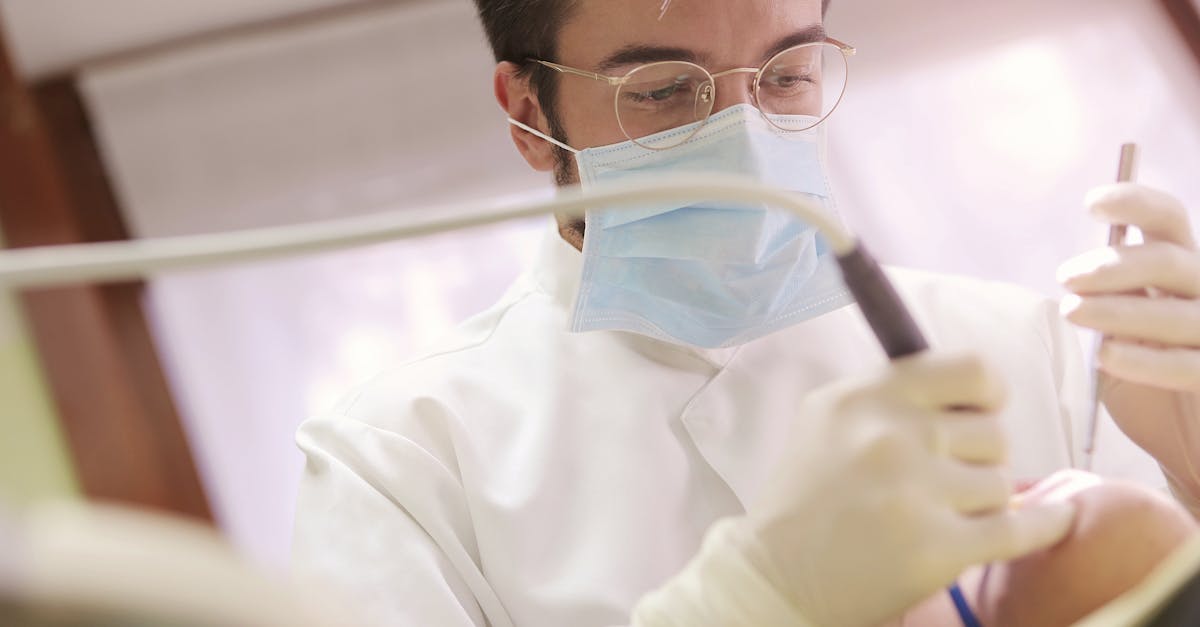
Soft Tissue Grafting
Table Of Contents
Boise Dental Implant offers top-notch soft tissue grafting services to improve the health and appearance of patients' gums. Our skilled team of specialists utilizes advanced techniques to correct gum recession and cover exposed roots, resulting in a more aesthetically pleasing smile and better overall oral health. Whether patients require connective tissue grafts, free gingival grafts, or pedicle grafts, our experts ensure a comfortable and successful procedure. With our commitment to excellence and personalized care, Boise Dental Implant is the premier choice for soft tissue grafting in the area.
Alternative Treatments
Gum recession is a common dental issue that can lead to sensitive teeth, aesthetic concerns, and potential oral health complications. In addition to soft tissue grafting, there are alternative treatments available to address gum recession. One option is the use of a specialized dental tray to deliver medication to the affected areas, promoting tissue regeneration. However, this method may not be as effective for severe cases of gum recession. Another alternative treatment involves the use of platelet-rich fibrin (PRF) therapy, where a concentration of growth factors from the patient's blood is applied to the gums to stimulate healing and tissue regeneration.
Non-surgical approaches such as scaling and root planing, along with proper oral hygiene practices, can sometimes help slow down or stop gum recession progression. Laser therapy is another alternative treatment that can be used to reshape gum tissues and improve the overall appearance of the smile. While these alternative treatments may offer benefits for certain cases of gum recession, it is essential to consult with a periodontist to determine the most suitable treatment option based on individual needs and the severity of the condition.
Comparing Soft Tissue Grafting Options
When it comes to comparing soft tissue grafting options, there are several factors to consider. One of the main differentiators among the various techniques is the source of the graft material. Autografts involve taking tissue from one part of the patient's own body and transplanting it to another area, which often leads to excellent integration and minimal risk of rejection. Allografts, on the other hand, use tissue from a donor source and are generally more readily available but may come with a slightly higher risk of rejection.
Additionally, the type of soft tissue grafting procedure selected can impact the overall outcome and recovery process. For instance, a connective tissue graft is commonly used to treat gum recession and involves taking tissue from the roof of the mouth. Alternatively, a free gingival graft may be utilized in cases where additional gum tissue is needed without the need for underlying connective tissue. Understanding the differences between these options can help both patients and clinicians choose the most suitable approach for each individual case.
Cost Considerations
When considering soft tissue grafting, cost is an important factor to take into account. The overall cost can vary depending on the type of grafting procedure needed, the severity of the gum recession, and the expertise of the specialist performing the surgery. It's essential to inquire about the total cost upfront, including any potential additional expenses that may arise during the recovery process.
Additionally, some insurance plans may cover a portion of the cost of soft tissue grafting. Before proceeding with the surgery, it's advisable to contact your insurance provider to inquire about coverage options and any pre-authorization requirements. If insurance coverage is limited, alternative payment plans or financing options may be available to help manage the expenses associated with the procedure.
Insurance Coverage and Financial Planning
Soft tissue grafting procedures can be essential for restoring gum health and achieving optimal oral aesthetics. However, the costs associated with these treatments can vary, making it crucial to understand insurance coverage and financial planning. Many dental insurance plans do provide some level of coverage for soft tissue grafting, but the extent of coverage may differ based on the specific procedure and individual policy terms. Prior to undergoing any soft tissue grafting procedure, it is highly recommended to contact your insurance provider to inquire about the coverage details and potential out-of-pocket expenses. Additionally, in cases where insurance coverage is limited, exploring alternative financing options or payment plans with the dental office may help make the treatment more financially manageable.
When considering soft tissue grafting, it is essential to take a proactive approach to financial planning to ensure that the anticipated costs align with your budget. Some dental specialists offer initial consultations to discuss treatment plans and associated costs, allowing patients to make informed decisions regarding their oral health investment. Understanding the financial implications of soft tissue grafting procedures enables individuals to plan ahead, potentially avoiding unexpected financial burdens. By exploring insurance coverage, discussing payment options, and strategically planning for out-of-pocket expenses, patients can navigate the financial aspect of soft tissue grafting with greater confidence and peace of mind.
Finding a Soft Tissue Grafting Specialist
When searching for a soft tissue grafting specialist, it is crucial to find a practitioner with specialized experience and training in this particular procedure. Start by asking for recommendations from your general dentist or periodontist as they may have a network of trusted professionals to refer you to. Additionally, consider exploring online reviews and ratings to further narrow down your options.
During your initial consultation with a potential soft tissue grafting specialist, remember to inquire about their credentials, such as their education, training, and years of experience performing these types of procedures. It is also important to discuss the specific technique they intend to use for your case and inquire about the expected recovery process and outcomes. Don't hesitate to ask about any potential risks or complications associated with the procedure to ensure you are well-informed before making a decision.
Questions to Ask During Consultation
When you meet with a specialist for a soft tissue grafting consultation, it's crucial to gather as much information as possible to make an informed decision. Start by asking about the different types of grafting techniques available and which one would be best suited for your specific case. Inquire about the success rate of the procedure and the expected recovery time to have a full understanding of what to expect post-surgery.
It's also important to ask about the potential risks and complications associated with the grafting procedure. Understanding the possible side effects allows you to prepare both mentally and physically for the treatment. Additionally, discuss the long-term benefits of the procedure and how it can improve the health and appearance of your gums in the future. Use this time to address any concerns or uncertainties you may have regarding the surgery process or the results you can anticipate.
FAQS
What is soft tissue grafting?
Soft tissue grafting is a dental procedure that involves taking tissue from one part of the mouth and grafting it onto another area, typically to improve gum health or aesthetics.
Are there alternative treatments to soft tissue grafting?
Yes, there are alternative treatments such as flap surgery, guided tissue regeneration, and connective tissue grafts that may be considered depending on the specific dental issue.
How do I compare different soft tissue grafting options?
To compare different soft tissue grafting options, consider factors such as the type of graft material used, the procedure complexity, recovery time, and success rates.
What cost considerations should I keep in mind for soft tissue grafting?
Cost considerations for soft tissue grafting include the type of graft material, the extent of the procedure, any additional treatments needed, and whether insurance coverage is available.
Does insurance cover soft tissue grafting and how can I plan financially for it?
Insurance coverage for soft tissue grafting varies, so it's important to check with your provider. If coverage is limited, consider payment plans or financing options to plan financially for the procedure.
How can I find a soft tissue grafting specialist?
To find a soft tissue grafting specialist, ask for recommendations from your dentist, research online reviews, and schedule consultations with different specialists to find the right fit for your needs.
What questions should I ask during a soft tissue grafting consultation?
During a soft tissue grafting consultation, consider asking about the specialist's experience, success rates, expected outcomes, recovery process, and any potential risks or complications associated with the procedure.




